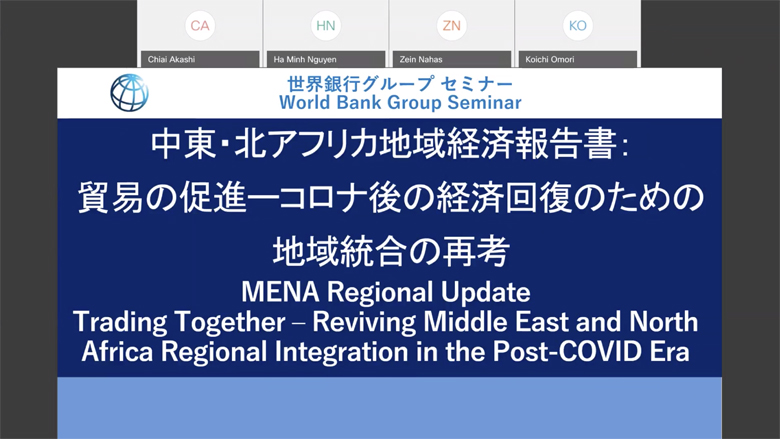The combination of a COVID-19 pandemic and a collapse in oil prices has affected all aspects of the economies in the Middle East and North Africa (MENA), according to the new report “MENA Economic Update: Trading Together – Reviving Middle East and North Africa Regional Integration in the Post-COVID Era”. The region’s economies are projected to contract by 5.2% in 2020, which is 4.1 percentage points below the forecast in April 2020, and 7.8 percentage points worse than that of October 2019, reflecting an increasingly pessimistic outlook for the regional economy. The region is expected to recover only partially in 2021.
The outlook for MENA’s current account and fiscal balances also deteriorated sharply. Driven largely by lower oil export revenue, a drop in fiscal revenue, and the large increase in fiscal expenditure required to respond to the health crisis, the region’s current account and fiscal balances in 2020 are forecast at -4.8% and -10.1% of GDP respectively, much worse than the forecasts in October 2019. Public debt is projected to rise significantly in the next few years, from about 45% of GDP in 2019 to 58% in 2022.
In dealing with the COVID-19 pandemic, the top priority is responding to the health crisis while aiming to preserve consumption and production capabilities. If financially feasible, countries should postpone fiscal consolidation until recovery is well underway. Reallocating spending to deal with the immediate impacts of the crisis and making such spending more efficient, for example, by proactively reducing leakages to ensure relief measures reach the intended beneficiaries can help create fiscal space. In the medium run, there is a strong need to boost productivity to restore growth and stabilize the debt. A powerful way to do that would be to pursue profound institutional reforms that would reshape the role of the state, promote fair competition, accelerate the adoption digital technology, and pursue regional integration, which is the focus of this report.
At this seminar, Blanca Moreno-Dodson, Manager, Center for Mediterranean Integration, World Bank and Ha Nguyen, Senior Economist, Office of Chief Economist for Middle East and North Africa Region, World Bank, presented the main findings of the report.
Date/Time:
3pm-4pm, Friday November 13, 2020
Speakers
 Manager, Center for Mediterranean Integration, World Bank Blanca Moreno-Dodson is the Lead Economist with the Public Sector Governance Group in the Poverty Reduction and Economic Management (PREM) at the World Bank. She has been at the World Bank for almost ten years and has a PhD in macroeconomic and monetary policy. |
 Senior Economist, Office of Chief Economist for Middle East and North Africa Region, World Bank Ha Minh Nguyen is a Senior Economist in the Office of the Chief Economist for the Middle East and North Africa Region. He joined the World Bank in July 2009 as a Young Economist after earning a Ph.D. in economics from the University of Maryland, College Park. He also holds a M.A. and B.A. in economics from The University of Adelaide, Australia. His research interests are International Finance and Economic Development. |
Presentation materials: Presentation: MENA Economic Update Blanca Moreno-Dodson (PDF)
Presentation: MENA Economic Update Ha Nguyen (PDF)
MENA Economic Update October 2020 (PDF)
